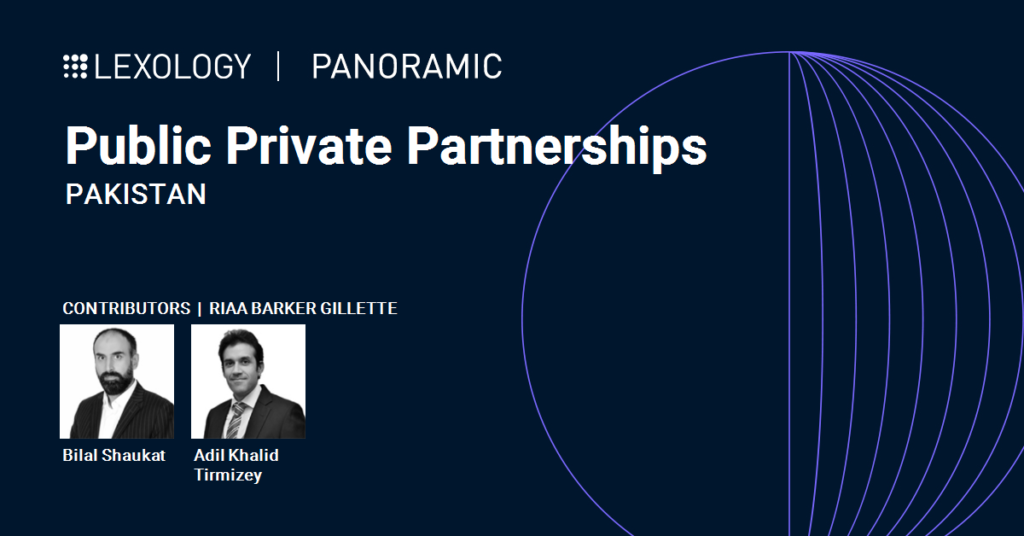
We authored the Pakistan chapter of the Lexology Panoramic Guide on Public-Private Partnerships 2025, which offers an authoritative overview of the country’s evolving PPP landscape. The guide provides a comprehensive overview of key topics, including the regulatory regime, procurement process, contractual provisions, risk allocation, financing, and dispute resolution applicable to PPP transactions in Pakistan.
Pakistan’s PPP framework has undergone significant development in recent years as the government increasingly turns to private sector participation to address infrastructure gaps and drive economic growth. The Pakistan chapter examines the evolution of the PPP regime, with dedicated federal and provincial laws now providing the primary legal framework, supplemented by sector-specific regulations.
Various PPP models have been successfully implemented in Pakistan, including build-operate-transfer (BOT), build-own-operate-transfer (BOOT), and design-build-finance-operate-transfer (DBFOT). This flexibility has enabled private investment across sectors like transportation, energy, healthcare and education.
The guide analyzes Pakistan’s PPP procurement framework, outlining key stages such as project identification, feasibility studies, bidding, and contract award. Key insights include an analysis of the typical contractual arrangements under PPP agreements, including allocating risks related to design, construction, operation, maintenance, and termination. The guide also discusses the available government support, security, and step-in rights for lenders. The publication examines successful case studies across sectors to offer practical recommendations for structuring bankable PPP projects.
Financing is crucial for PPP viability. The guide explores available structures, including project finance, viability gap funding, and government guarantees. It discusses developments like the Pakistan Infrastructure Bank, which aims to mobilize private capital. Government support mechanisms such as land acquisition assistance, tax incentives, and forex hedging facilities are also covered.
The guide compares PPP approaches across provinces, each with its own PPP laws and policies. Punjab and Sindh have proactively established dedicated PPP units and leveraging PPPs for infrastructure development.
Recent trends include increased adoption of unsolicited proposals, where private sector entities proactively identify and propose PPP projects to the government, and greater emphasis on enhancing public sector capacity to manage PPPs effectively.
A Partner at RIAA Barker Gillette, who co-authored the guide, notes commented:
“As Pakistan accelerates infrastructure development in the energy, transport, social infrastructure, and urban sectors through private participation, this guide is an essential resource for understanding the PPP landscape. Recent developments such as introduction of standardized bidding documents, and increased focus on unsolicited proposals are transforming the PPP landscape. The guide will be particularly useful for investors, developers, and lenders evaluating opportunities in Pakistan’s burgeoning PPP market.”
For more information on public private partnerships in Pakistan, please access The Lexology Panoramic Guide on Public-Private Partnerships or contact Bilal Shaukat, the Managing Partner of RIAA Barker Gillette Pakistan
This article is not legal advice; it provides information of general interest about current legal issues.
RIAA Barker Gillette is Pakistan’s premier law firm, with an on-the-ground presence in four major cities in Pakistan: Karachi, Islamabad, Lahore, and Peshawar, and affiliated offices in Dubai (DIFC) and London.
The firm practices in all areas of corporate, commercial and dispute resolution law. Leading international legal directories consistently recognize the firm as a top-tier law firm in Pakistan.

RIAA Barker Gillette is the exclusive member firm in Pakistan for Lex Mundi, the world’s leading network of independent law firms with in-depth experience in over 125 countries worldwide.
